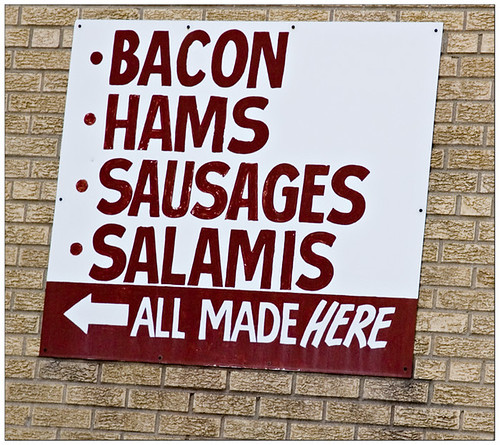Gee, you'd think the FDA would be a little smarter about managing their public relations by now. Apparently not. Perhaps if the FDA mission wasn't so transparent - protection of American pharmaceutical companies profits at all costs - more might get done to solve these recurring problems.
The F.D.A. approved a crucial blood-thinning drug for sale without first inspecting a Chinese plant which, along with a plant in Wisconsin, made the drug’s active ingredient.
“It was obviously a glitch” that the drug, heparin, produced and sold by Baxter International, was approved for sale without a plant inspection, said Karen Riley, an F.D.A. spokeswoman. The agency does not know who was at fault, and it is still “preparing to send inspectors over there,” Ms. Riley said.
Peter Barton Hutt, a former top lawyer for the agency, said that since 1980 it has had a policy requiring that plants be inspected before drugs are approved for sale.
Representative Bart Stupak, Democrat of Michigan and chairman of a House investigative subcommittee, said that no matter what happened with the heparin inquiry, the F.D.A.’s inability to provide basic information about the Chinese manufacturing plant weeks after concerns were first raised was deeply troubling.
“They can’t tell us if they’ve inspected this plant, what other problems might have been identified at this plant, or what other U.S. firms might be getting supplies from this plant,” he said.
Mr. Stupak’s committee and Senator Charles E. Grassley, Republican of Iowa, both sent letters to the agency on Thursday, asking for more information about inspections of plants making heparin.
Baxter International announced on Monday that it was suspending sales of its multidose vials of heparin after four patients died and 350 suffered complications, many of them serious. Baxter bought the active ingredient for this product from Scientific Protein Laboratories, which has plants in Waunakee, Wis., and Changzhou City, China.
[From F.D.A. Broke Its Rules by Not Inspecting Chinese Plant With Problem Drug]

As a parenthetical thought, the active ingredient in Heparin is pig intestines. Was that on the label? Do Muslims and Jews knowingly ingest pig intestines just because it is not in pill form? Can bacon be sold at a pharmacy?
Anyway, the pharmaceutical giants have figured out how to make greater profit margins - use factories overseas, without proper regulation or oversight. The FDA has turned a blind eye on this practice for years, and the deaths keep adding up, as do the number of FDA officials who get lucrative jobs in the pharmaceutical industry months after leaving government service. Hmmmm.
Dr. Ajay Singh, director of dialysis at the Brigham and Women’s Hospital in Boston, said he was astonished by what he called the many failures to ensure a safe supply of heparin. There are 450,000 people in the United States on dialysis, and nearly all of them need copious doses of heparin, he said. Heparin is also used in cardiac surgery and among chronic care patients.
“We need to ensure that this country has access to the crucial medicines it needs,” Dr. Singh said. “This is a national security issue.”
n
The heparin scare comes at a particularly delicate time for the F.D.A. Over the past year, a wave of tainted goods from China, including deadly pet food ingredients and tainted fish, has prompted concern about whether regulators are adequately monitoring imports’ safety.
The Government Accountability Office released three reports in recent months that found that the drug agency provided little oversight of the increasing number of foreign plants that export food, drugs and devices to the United States.
Although the agency must inspect domestic drug plants once every two years, the investigators found that it inspected foreign drug plants at best once every 13 years. The agency’s record in China, now one of the biggest drug suppliers in the world, is even worse. Of the 700 approved Chinese drug plants, the agency has been able to inspect only 10 to 20 each year and would need 40 to 50 years to inspect them all
Dandy. Just dandy. One day, sooner than we think, the levy is going to break, and thousands of people are going to die from some contaminated drug and/or food item.
